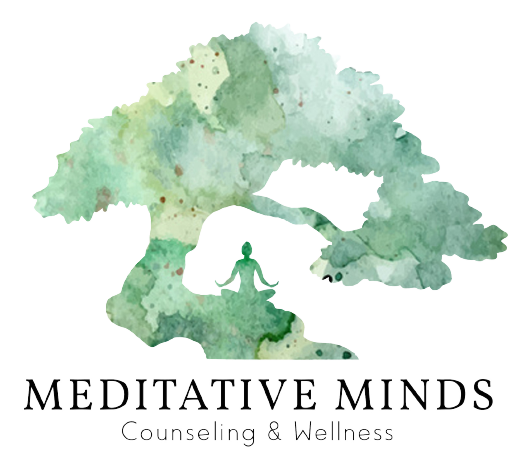In today’s fast-paced and demanding world, the pursuit of career success often takes precedence over personal well-being. However, what if I told you that finding fulfillment in your career could actually enhance your overall happiness and mental health? Welcome to the intersection of therapy and career development, where the traditional boundaries between professional success and personal fulfillment blur. In this blog post, we delve into the profound impact that therapy can have on shaping your career path and ultimately leading to a more fulfilling work life. From uncovering your true passions and values to navigating workplace challenges and transitions, therapy offers invaluable insights and strategies to help you thrive in your chosen profession. Join us as we explore the transformative potential of integrating therapy into your career development journey, unlocking new levels of fulfillment and satisfaction along the way.
Understanding the Role of Therapy in Career Development

In today’s fast-paced and competitive professional landscape, the journey toward career development can often be accompanied by various challenges, uncertainties, and personal obstacles. While traditional career guidance and skill-building workshops certainly have their place, an often-overlooked aspect of fostering career growth and fulfillment lies within the realm of therapy. In this article, we’ll explore the significant role that therapy plays in supporting individuals on their path to professional success and personal fulfillment.
- Creating a Safe Space for Exploration: Therapy provides a confidential and non-judgmental space where individuals can explore their thoughts, feelings, and experiences related to their careers. This safe environment encourages introspection and self-discovery, allowing individuals to uncover underlying motivations, fears, and aspirations that may influence their career choices.
- Identifying Patterns and Obstacles: Through guided conversations and therapeutic techniques, such as cognitive-behavioral therapy (CBT) or psychodynamic therapy, individuals can gain insight into recurring patterns of behavior or thought that may be impacting their career development. These patterns could include self-doubt, fear of failure, perfectionism, or unresolved past experiences that hinder progress.
- Clarifying Values and Goals: Therapy helps individuals clarify their values, priorities, and long-term career goals. By examining core beliefs and exploring what truly matters to them, individuals can align their career choices with their authentic selves, leading to greater satisfaction and fulfillment in their professional lives.
- Addressing Career-related Anxiety and Stress: Many individuals experience anxiety, stress, or burnout in relation to their careers. Therapy provides effective coping strategies and relaxation techniques to manage these emotions constructively. By learning to regulate stress and anxiety, individuals can approach challenges in their careers with resilience and confidence.
- Improving Communication and Interpersonal Skills: Strong communication and interpersonal skills are essential for success in any career. Therapy offers a space to develop these skills, whether it’s assertiveness training, conflict resolution, or active listening. Enhanced communication abilities enable individuals to navigate workplace dynamics, build meaningful relationships, and advocate for themselves effectively.
Leveraging Therapy for Professional Growth

Leadership is not merely about holding a position of authority; it’s about inspiring and empowering others to achieve common goals. However, the path to becoming an effective leader is often fraught with challenges that extend beyond technical skills and strategic acumen. Leveraging therapy as a tool for leadership development can offer profound insights, fostering self-awareness, emotional intelligence, and resilience. In this article, we’ll explore how therapy can enhance leadership capabilities and contribute to professional growth.
Self-Exploration and Authentic Leadership
Effective leadership begins with self-awareness and authenticity. Therapy provides a supportive environment for leaders to explore their values, strengths, weaknesses, and personal motivations. By gaining insight into their authentic selves, leaders can cultivate a leadership style that is aligned with their values and inspires trust and respect from their teams.
Emotional Intelligence and Relationship Building

Emotional intelligence (EQ) is a critical component of effective leadership, influencing one’s ability to understand and manage emotions, communicate effectively, and build strong relationships. Therapy can enhance EQ by helping leaders recognize and regulate their emotions, empathize with others, and navigate interpersonal dynamics with empathy and integrity.
Stress Management and Resilience
Leadership roles often come with high levels of stress, pressure, and uncertainty. Therapy equips leaders with coping strategies and resilience-building techniques to navigate challenging situations with grace and composure. By learning to manage stress effectively, leaders can maintain focus, make sound decisions, and inspire confidence in their teams during times of adversity.
Conflict Resolution and Negotiation Skills
Conflict is inevitable in any workplace environment, but effective leaders possess the skills to manage conflict constructively and facilitate resolution. Through therapy, leaders can develop conflict resolution techniques, active listening skills, and negotiation strategies that promote collaboration, foster mutual understanding, and preserve relationships within the team.
Decision-Making and Risk Management
Leadership often involves making difficult decisions and managing risks that impact the organization and its stakeholders. Therapy helps leaders clarify their values, assess risks objectively, and weigh options thoughtfully before making decisions. By honing their decision-making skills, leaders can instill confidence, inspire trust, and drive positive outcomes for their teams and organizations.
Conclusion
The integration of therapy and career development offered by Meditative Minds Counseling & Wellness in Simi Valley, CA, serves as a beacon for individuals seeking fulfillment in their professional lives. By recognizing the interconnectedness of mental health and career satisfaction, this innovative approach provides clients with the tools to navigate challenges, cultivate resilience, and pursue meaningful work. Through their holistic services, Meditative Minds empowers individuals to embark on a journey of self-discovery, fostering personal growth and fulfillment in both their professional endeavors and overall well-being. With a commitment to holistic healing and personal development, Meditative Minds Counseling & Wellness stands as a testament to the transformative power of integrating therapy into the pursuit of career fulfillment.


